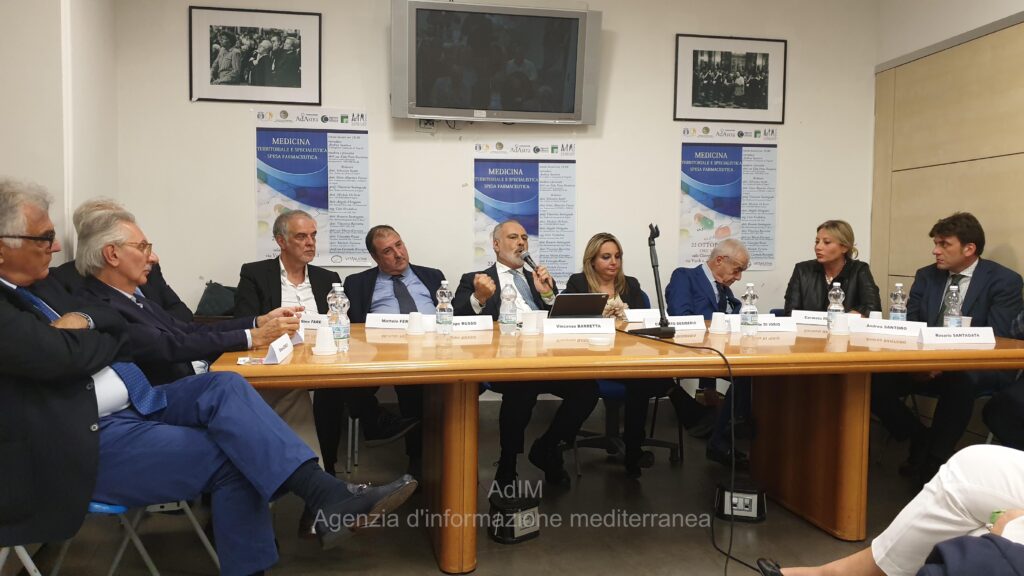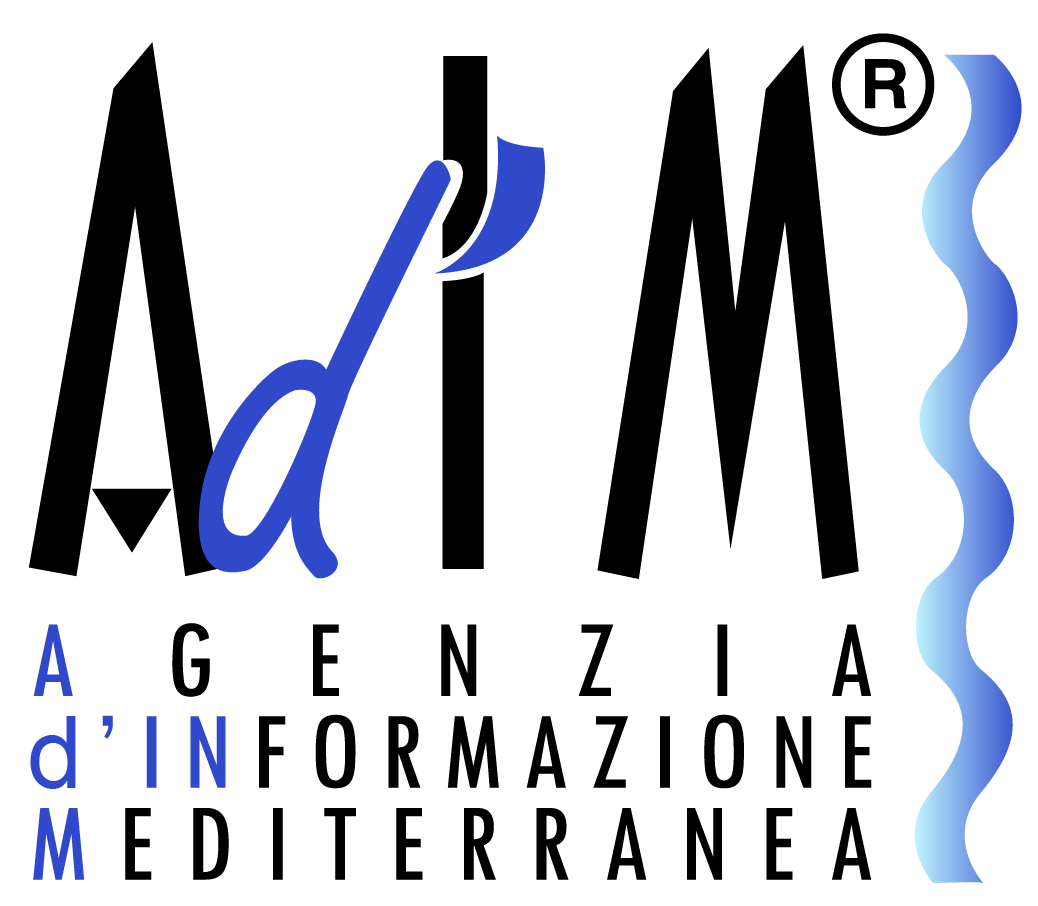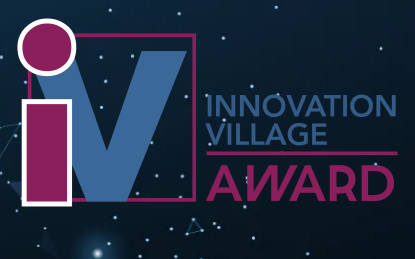
Tuesday 22 October, starting from hours 18:00, at the Nugnes Hall (via Verdi n.35) of the Municipality of Naples, the conference entitled “Territorial and specialist medicine was held. Pharmaceutical spending". The synergistic organization of the sponsoring partners of the event - the AdAstra Agency for Social Cohesion with the President Dott. Alberto Farina, the AdAstra Foundation with the lawyer. Luciano Lepre, and the AdiM Society – Mediterranean Information Agency with Dr. Luciano Mattina – and the hospitality of the municipal administration was impeccable, expressed through the participatory presence of the municipal councilor Dr. Andrea Santoro. Among hospital facilities, Universities and trade federations, the composite parterre of guests was able to boast professionals of great depth and considerable experience in the healthcare sector. In fact, they intervened: the Pilgrims' Hospital (or Vecchio Pellegrini), with the presence of the Health Director Dr. Maria Corvino; the University of Salerno – Department of Medicine, Surgery and Dentistry – Emergency Surgery Department, in the person of Prof. Carmela Rescigno; l’ASL NA1 – SERT, represented by Dr. Vincenzo Barretta, who also carried out the demanding role of co-moderator, stimulating the discussion with interesting ideas and in-depth questions; FEDERFARMA Naples, in the figure of the President Dr. Michele Di Iorio; the ENPAM Commission c/o OMCeO, with the President Dr. Gino Almerico Farese; the Sea Hospital, which saw the participation of the Director Dr. Michele Ferrara; the SS Hospital Garrison. Annunziata, and its Health Director Dr. Angelo Mengano; the Cardarelli Hospital Company, with the intervention of the Health Director Dr. Giuseppe Russo; the Order of Pharmacists, in the person of the President Prof. Vincenzo Santagada; the AORN Santobono Pausilipon Hospital – Otolaryngology Department, represented by the Director Dr. Rosario Santagata; the Medical Order of Naples, with the President Dr. Silvestro Scotti; l’ASL NA1, with the presence of the General Director Eng. Ciro Verdoliva. To do the honors of the house, accompanying the discussion with punctual moderation in timing and measured insertions, it was Dr. Elda Pinto Desiderio, Director of the PROMEDIAL Pharmaceutical Wellbeing Sector, who started the discussion with the important complaint that emerges from reading the latest ISTAT data, according to which the percentages of users from Campania who give up treatment, discouraged above all by the high costs of certain services and the length of waiting lists, they stand at very worrying percentages. The transversal themes contributed to the realization of an event with not only informative and comparison purposes, but above all the connection between primary and local specialist medicine, with the unanimous request for a strategy of greater communication and cooperation between the different areas of provision of Health Services. In the presence of a packed and attentive room, the guests represented the many instances of a complex and very delicate area (the climate of verbal violence was highlighted in many quarters, and not infrequently physics, to which healthcare workers are subjected), and equally numerous were the answers provided and the proposals analysed. First of all, the constant dialogue between General Practitioners and Specialists and a greater connection between public and private services, from a perspective of dialogue and networking that is as free as possible from controversy and idiosyncrasies, and aimed exclusively at dialogue with the patient. Comparison therefore remains the most pressing need, and despite what one might think, it is not only the sick who ask for it but rather the operators who work in the healthcare sector, aware that the convergence of assessments can contribute to obtaining a timely diagnosis, more appropriate treatments, and a satisfactory health response, especially in those very many cases that require the constant collaboration of the "general practitioner" with the local specialist. One of the most debated topics, that of health spending, burdened by over-prescription phenomena often motivated by a tendency towards defensive medicine entrenched almost by necessity behind the duty to rely on the drug at all costs. After all, our healthcare system has to deal with the rapidly aging population (which sees Italy being the third oldest nation in Europe) and with the increase in chronic pathologies, which therefore require a greater commitment in terms of health services and spending. And speaking of longevity, our healthcare system has passed its first forty years, and in recalling the entire road taken to achieve the results achieved, it has been underlined by many how the numerous main peculiarities make it one of the best in Europe, if not of the world. Between strengths and weaknesses, between improvements and epochal changes adapted to the new dynamics of work (and the study) that changes, It is found that one of the biggest current distortions is that linked to general communication (thanks to the ungovernable social networks) which filters little and badly of merit and excellence, mixing everything together in the great cauldron of necessary lament. To prevent this two-faced Janus from damaging the already fragile dynamics of doctor-patient dialogue, and for everyone to cooperate in the best possible way, the public underlines the importance of considering Patient Associations as qualified interlocutors and adequate amplifiers to moderate the dialogue between healthcare professionals and the audience of users, too often untied and huddled in an attitude of mutual closure. The results of the debate were positive, which ended with an alliance between Doctors, Pharmacists, Local Institutions and Expert Patients, in order to fuel a constant dynamic of discussion and resilience so that the Right to Care enshrined in our Constitution in Article 32, and by the good Hippocrates a little earlier, may it always be safeguarded and dutifully honoured. Tuesday 22 October, starting from hours 18:00, at the Nugnes Hall (via Verdi n.35) of the Municipality of Naples, the conference entitled “Territorial and specialist medicine was held. Pharmaceutical spending". The synergistic organization of the sponsoring partners of the event - the AdAstra Agency for Social Cohesion with the President Dott. Alberto Farina, the AdAstra Foundation with the lawyer. Luciano Lepre, and the AdiM Society – Mediterranean Information Agency with Dr. Luciano Mattina – and the hospitality of the municipal administration was impeccable, expressed through the participatory presence of the municipal councilor Dr. Andrea Santoro. Among hospital facilities, Universities and trade federations, the composite parterre of guests was able to boast professionals of great depth and considerable experience in the healthcare sector. In fact, they intervened: the Pilgrims' Hospital (or Vecchio Pellegrini), with the presence of the Health Director Dr. Maria Corvino; the University of Salerno – Department of Medicine, Surgery and Dentistry – Emergency Surgery Department, in the person of Prof. Carmela Rescigno; l’ASL NA1 – SERT, represented by Dr. Vincenzo Barretta, who also carried out the demanding role of co-moderator, stimulating the discussion with interesting ideas and in-depth questions; FEDERFARMA Naples, in the figure of the President Dr. Michele Di Iorio; the ENPAM Commission c/o OMCeO, with the President Dr. Gino Almerico Farese; the Sea Hospital, which saw the participation of the Director Dr. Michele Ferrara; the SS Hospital Garrison. Annunziata, and its Health Director Dr. Angelo Mengano; the Cardarelli Hospital Company, with the intervention of the Health Director Dr. Giuseppe Russo; the Order of Pharmacists, in the person of the President Prof. Vincenzo Santagada; the AORN Santobono Pausilipon Hospital – Otolaryngology Department, represented by the Director Dr. Rosario Santagata; the Medical Order of Naples, with the President Dr. Silvestro Scotti; l’ASL NA1, with the presence of the General Director Eng. Ciro Verdoliva. To do the honors of the house, accompanying the discussion with punctual moderation in timing and measured insertions, it was Dr. Elda Pinto Desiderio, Director of the PROMEDIAL Pharmaceutical Wellbeing Sector, who started the discussion with the important complaint that emerges from reading the latest ISTAT data, according to which the percentages of users from Campania who give up treatment, discouraged above all by the high costs of certain services and the length of waiting lists, they stand at very worrying percentages. The transversal themes contributed to the realization of an event with not only informative and comparison purposes, but above all the connection between primary and local specialist medicine, with the unanimous request for a strategy of greater communication and cooperation between the different areas of provision of Health Services. In the presence of a packed and attentive room, the guests represented the many instances of a complex and very delicate area (the climate of verbal violence was highlighted in many quarters, and not infrequently physics, to which healthcare workers are subjected), and equally numerous were the answers provided and the proposals analysed. First of all, the constant dialogue between General Practitioners and Specialists and a greater connection between public and private services, from a perspective of dialogue and networking that is as free as possible from controversy and idiosyncrasies, and aimed exclusively at dialogue with the patient. Comparison therefore remains the most pressing need, and despite what one might think, it is not only the sick who ask for it but rather the operators who work in the healthcare sector, aware that the convergence of assessments can contribute to obtaining a timely diagnosis, more appropriate treatments, and a satisfactory health response, especially in those very many cases that require the constant collaboration of the "general practitioner" with the local specialist. One of the most debated topics, that of health spending, burdened by over-prescription phenomena often motivated by a tendency towards defensive medicine entrenched almost by necessity behind the duty to rely on the drug at all costs. After all, our healthcare system has to deal with the rapidly aging population (which sees Italy being the third oldest nation in Europe) and with the increase in chronic pathologies, which therefore require a greater commitment in terms of health services and spending. And speaking of longevity, our healthcare system has passed its first forty years, and in recalling the entire road taken to achieve the results achieved, it has been underlined by many how the numerous main peculiarities make it one of the best in Europe, if not of the world. Between strengths and weaknesses, between improvements and epochal changes adapted to the new dynamics of work (and the study) that changes, It is found that one of the biggest current distortions is that linked to general communication (thanks to the ungovernable social networks) which filters little and badly of merit and excellence, mixing everything together in the great cauldron of necessary lament. To prevent this two-faced Janus from damaging the already fragile dynamics of doctor-patient dialogue, and for everyone to cooperate in the best possible way, the public underlines the importance of considering Patient Associations as qualified interlocutors and adequate amplifiers to moderate the dialogue between healthcare professionals and the audience of users, too often untied and huddled in an attitude of mutual closure. The results of the debate were positive, which ended with an alliance between Doctors, Pharmacists, Local Institutions and Expert Patients, in order to fuel a constant dynamic of discussion and resilience so that the Right to Care enshrined in our Constitution in Article 32, and by the good Hippocrates
a little earlier, may it always be safeguarded and dutifully honoured.
Compiled by: Celeste Napolitano






